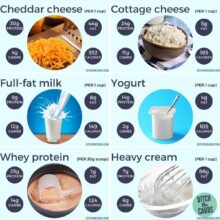If You’re Exercising, You Should Lose Weight
While every legitimate diet plan also includes an exercise plan, there are times when you might notice that your exercise routine is no longer helping you manage your weight. Use the suggestions below to maximize the weight loss benefits of exercise in your daily routine.
Consider whether the fatigue you feel after exercise is impacting your other daily activities. Exercise can be tiring and you might find yourself less in the way of household chores, gardening or other physical activity that is not specifically your exercise routine. Exercise should ideally be an additional physical activity in your life rather than a replacement of other activities.
Sometimes weight loss goals can be frustrated by increased calorie consumption when you exercise. Since exercise burns calories, it can frequently increase your appetite. Keep an eye on your portion sizes and the quality of food you’re eating when you incorporate exercise.
If you find yourself experiencing more hunger when you increase your exercise, satisfy your hunger with larger salads or a vegetable or fruit snack in order to prevent losing the benefits of calorie expenditure by overeating after exercise.
Don’t stop exercising. By volume, muscle tissue weighs more than a similar amount of fat tissue. This does not mean that muscle weighs more than fat, a pound is a pound, but you might gain a few pounds because for a given volume of muscle versus fat tissue, the muscle tissue weighs more. Another reason not to discontinue exercise based on the increased weight from muscle is that you’ll likely notice that you are more toned and that you look and feel better than you did when you had less muscle.
If exercising interferes with your night’s sleep, you may eat more and experience slower weight loss or weight gain. Sometimes you’ll find a change in your sleep pattern when you institute an exercise regimen that reduces the amount of time you’re sleeping each night. Work towards maintaining a healthy sleep schedule.
Determine why you’re losing sleep. Common reasons for sleep interruption include resting after exercise during the day because you experience fatigue or the fact that you experience the aches and pains from exercise when you try to sleep at night. Less sleep frequently means that you’re snacking while you’re awake or snacking to stay awake because you’re tired from not having a good night’s sleep.
Consider changing your workout times in order to adjust to physical exercise without interfering with your sleep. Incorporate cool-down and warm-up stretches into your exercise routine to reduce soreness after exercise so that aches and pains don’t keep you awake at night.
Make sure that you include aerobic exercises as part of your workout routine to optimize your weight-loss efforts. If your exercise emphasizes strength and toning, you should increase the amount of aerobic exercise you’re doing in order to increase calorie usage.
Exercising is part of a healthy approach to weight loss but can sometimes result in weight gain. Use the suggestions above to maximize the effectiveness of exercise in helping you achieve weight loss goals.






